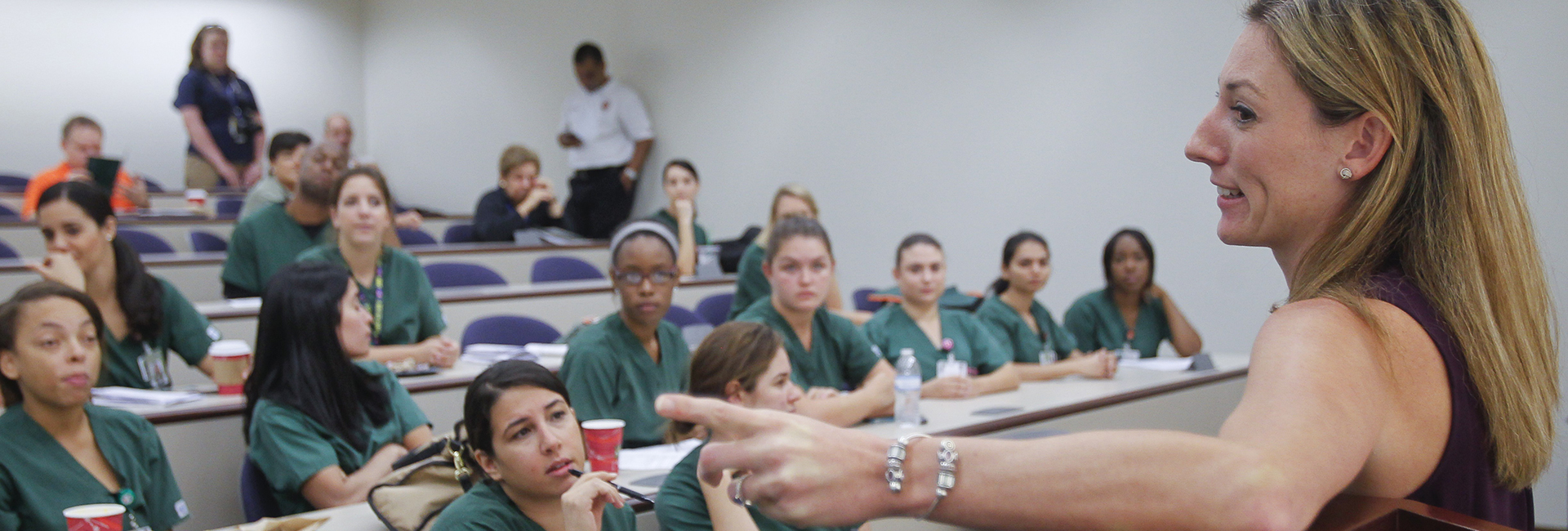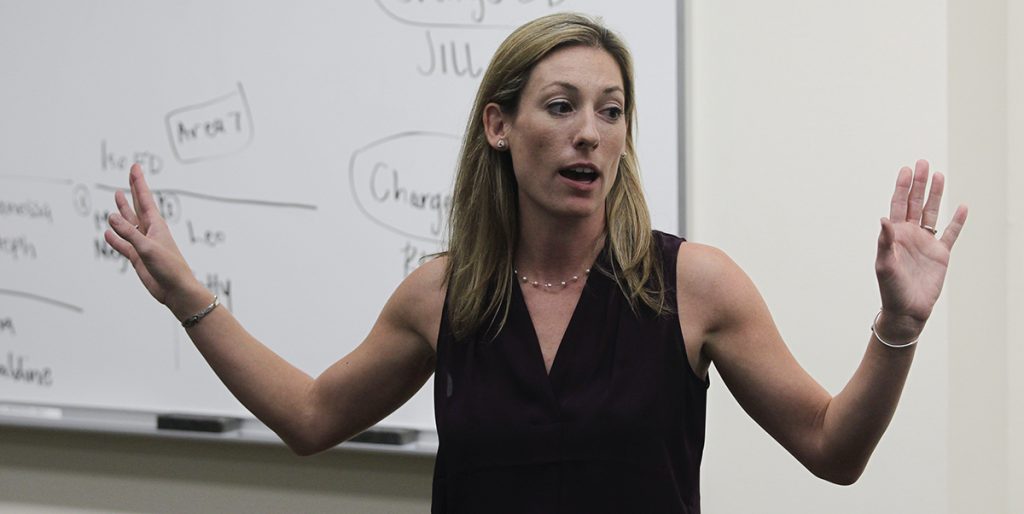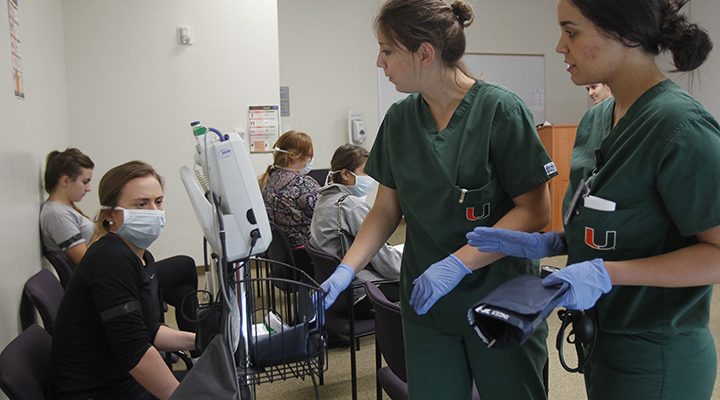

Rigorous training by UM’s School of Nursing and Health Studies prepares students to deal with the health impacts of climate change.
When severe flooding forced thousands of people from their homes in Louisiana, Mississippi, and Texas in March 2016, immediate efforts focused on cleanup and recovery.
But Summer DeBastiani, a doctoral student in the University of Miami’s School of Nursing and Health Studies, knew as well as anyone that the potential health consequences spawned by the disaster—including the spread of vector-borne diseases—would also need to be addressed.
“That goes for any natural disaster,” says DeBastiani, a former health scientist with the U.S. Centers for Disease Control and Prevention, where she worked in disaster preparedness and response. “Whether it’s flooding, hurricanes or drought, natural disasters always bring with them the threat of disease outbreaks.”
About the Photo
Summer DeBastiani, a doctoral student with the School of Nursing and Health Studies, coordinates the school’s disaster preparedness training.
Join the Conversation
Follow on Twitter:
University of Miami, @univmiami
UM News, @univmiaminews
“Hospitals must maintain a certain standard among their nurses and doctors, who have to be trained in certain protocols to respond to disasters,” she explains. DeBastiani, who last year was a faculty member at the nursing school before deciding to enroll in its Ph.D. program, has played a key role in the school’s disaster preparedness training, helping to organize and lead simulation drills that prepare students to deal with everything from an Ebola outbreak to a category 5 hurricane.
“They come out badged, credentialed, and ready to deploy with the MRC (Medical Reserve Corps),” says DeBastiani, who staffed the CDC’s emergency operations center during Hurricane Sandy in 2012. “Through the MRC, they can volunteer as a health care professional at any disaster site, in any county or state.”
They are also trained in staffing and operating a point of distribution, or POD, a site or area where medications or vaccinations can be mass distributed to large numbers of people in the event of a naturally occurring disease outbreak or a bioterrorist event.
Disadvantaged communities are the most vulnerable and have the least resources to respond to the health threats associated with climate change and natural disasters. As such, to increase awareness and build a health care work force that can recognize and respond to the health needs of these populations, UM nursing students are educated in the epidemiology of infectious and chronic diseases as well as the social, biological, environmental, and cultural determinants of health.
- Robert C. Jones Jr. / UM News

